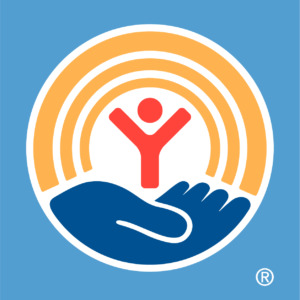The Lubert Individual Development Account (IDA) program is one of the most important initiatives in our region.
It seeks to help everyone in the UWGPSNJ service area build healthy financial futures through obtaining assets. It helps youth and adult learners obtain a higher education so they can find good, high-paying jobs. It helps single moms and dads, families, and single adults purchase a home and start to build generational wealth. And it helps the entrepreneur who needs a little extra help to keep their small business running—keeping jobs and money in their local community.
The Individual Development Account (IDA) program started in 2002 under the government's Assets for Independence (AFI), a community-based initiative with the goal to give low-income families a hand-up out of poverty with a 2:1 and 3:1 matched savings program. Recipients save $2,000, and they receive up to $6,000 from United Way.
Recipients save $2,000, and they receive up to $6,000 from United Way.
After the government stopped funding AFI in 2016, Ira Lubert, a longtime supporter of UWGPSNJ, stepped up with a 5-year and several-million-dollar commitment. It was aptly renamed the Lubert IDA program.
“The goals of IDA have not changed in that we are still using asset building to assist low to medium-income families generate wealth,” said Cheryl Mackey, Lead of the Financial Empowerment pillar here at UWGPSNJ.
However, some improvements have been made. "In 2018, Small Business accounts were added to aid local entrepreneurs. We’ve also increased eligibility to allow more families to take advantage of the program," she added.
"Families no longer need to be TANF eligible, and over the years, we’ve increased the income guidelines from 200% of the Federal Poverty Line to 350%, and again this coming year to 400%.”
Programs like this one—programs that are actually working to address the generational nature of poverty and inequity—are essential. As Mackey said, "it provides opportunities—and that’s something all people deserve.”
"It provides opportunities—and that’s something all people deserve.”
“That said, we must not forget that these statements do not always ring true for Black and Brown families. Black students, upon graduating from college, still make less than their white counterparts, and homeownership only becomes a wealth generator when one has the financial resources to make improvements or keep up with repairs. That’s why the Lubert IDA program also provides housing stabilization, financial literacy, and case management,” Mackey added.
When asked what, if any, role the program plays in United Way’s overall mission to end poverty and expand opportunity, Cheryl recalled a recent interaction.
“I recently spoke with a single mom who was looking to complete her graduate degree but was ready to quit because of the cost. I spoke to her about the Lubert IDA program, and she revealed she had a son who recently graduated from high school and was also in need of extra funds for his education. We immediately got her and her son enrolled in the IDA program and, with the money they’ve received from the 3:1 matched savings, they will both be able to complete their educations.”
“There is no poverty alleviation without IDA because it provides opportunities where there otherwise may not be.”
To learn more about the Lubert IDA program and to stay informed about all of United Way’s offerings, sign up for our newsletter and keep checking in on our latest blog posts.

